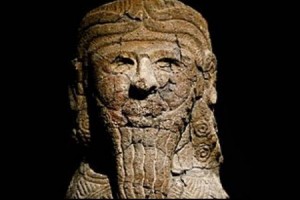The Poem from “To Rome With Love”
Posted on June 29, 2012 at 3:50 pm
 In Woody Allen’s new film, To Rome With Love, characters describe an “Ozymandian melancholy.” That is a reference to the poem “Ozymandias” by Percy Bysshe Shelley. It is the story of a man who describes an enormous ancient statue that is all broken and decayed. Hundreds, maybe thousands of years before, an arrogant king had the statue erected to show that his power and fame would never die. But today, he is not even remembered. The “Ozymandian melancholy” refers to the sense that all accomplishment, all happiness, all existence is fleeting. Setting the film in a city that is filled with ancient artifacts underscores this theme.
In Woody Allen’s new film, To Rome With Love, characters describe an “Ozymandian melancholy.” That is a reference to the poem “Ozymandias” by Percy Bysshe Shelley. It is the story of a man who describes an enormous ancient statue that is all broken and decayed. Hundreds, maybe thousands of years before, an arrogant king had the statue erected to show that his power and fame would never die. But today, he is not even remembered. The “Ozymandian melancholy” refers to the sense that all accomplishment, all happiness, all existence is fleeting. Setting the film in a city that is filled with ancient artifacts underscores this theme.
I met a traveler from an antique land
Who said: Two vast and trunkless legs of stone
Stand in the desert. Near them, on the sand,
Half sunk, a shattered visage lies, whose frown,
And wrinkled lip, and sneer of cold command,
Tell that its sculptor well those passions read
Which yet survive, stamped on these lifeless things,
The hand that mocked them, and the heart that fed;
And on the pedestal these words appear:
“My name is Ozymandias, king of kings:
Look on my works, ye Mighty, and despair!”
Nothing beside remains. Round the decay
Of that colossal wreck, boundless and bare
The lone and level sands stretch far away.

Many thanks for your very useful explanation, which gives the key to the movie.
Marc
My pleasure, Marc!
Its good to know about it, now I barely understood it. I love Ozymandias for a name, I just wonder how to pronounce it.
Rica
Thanks, Rica! It’s Ozzie-mun-dee-us